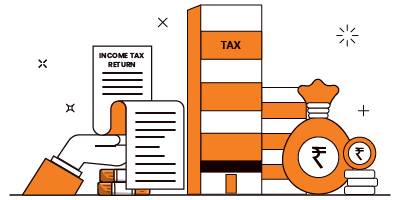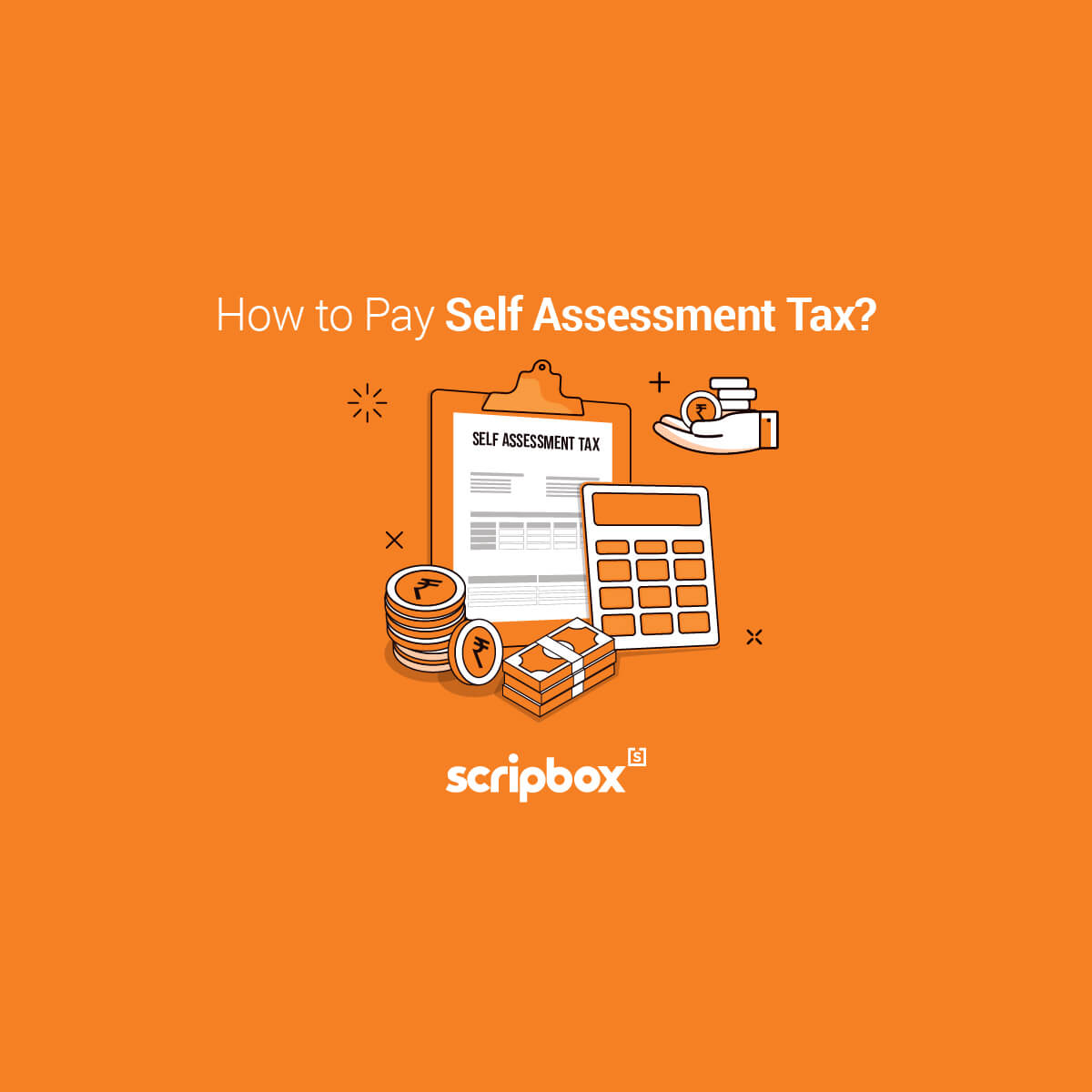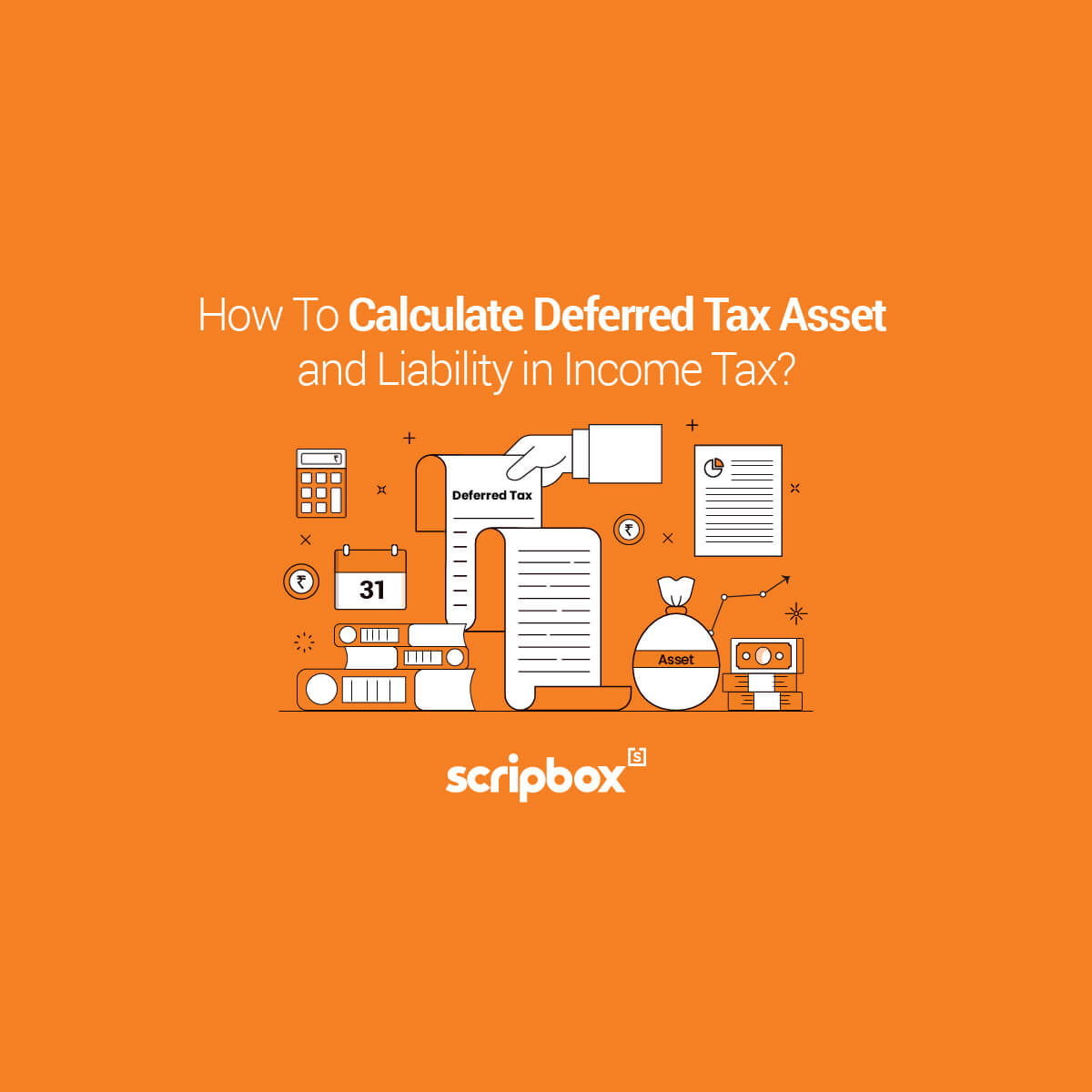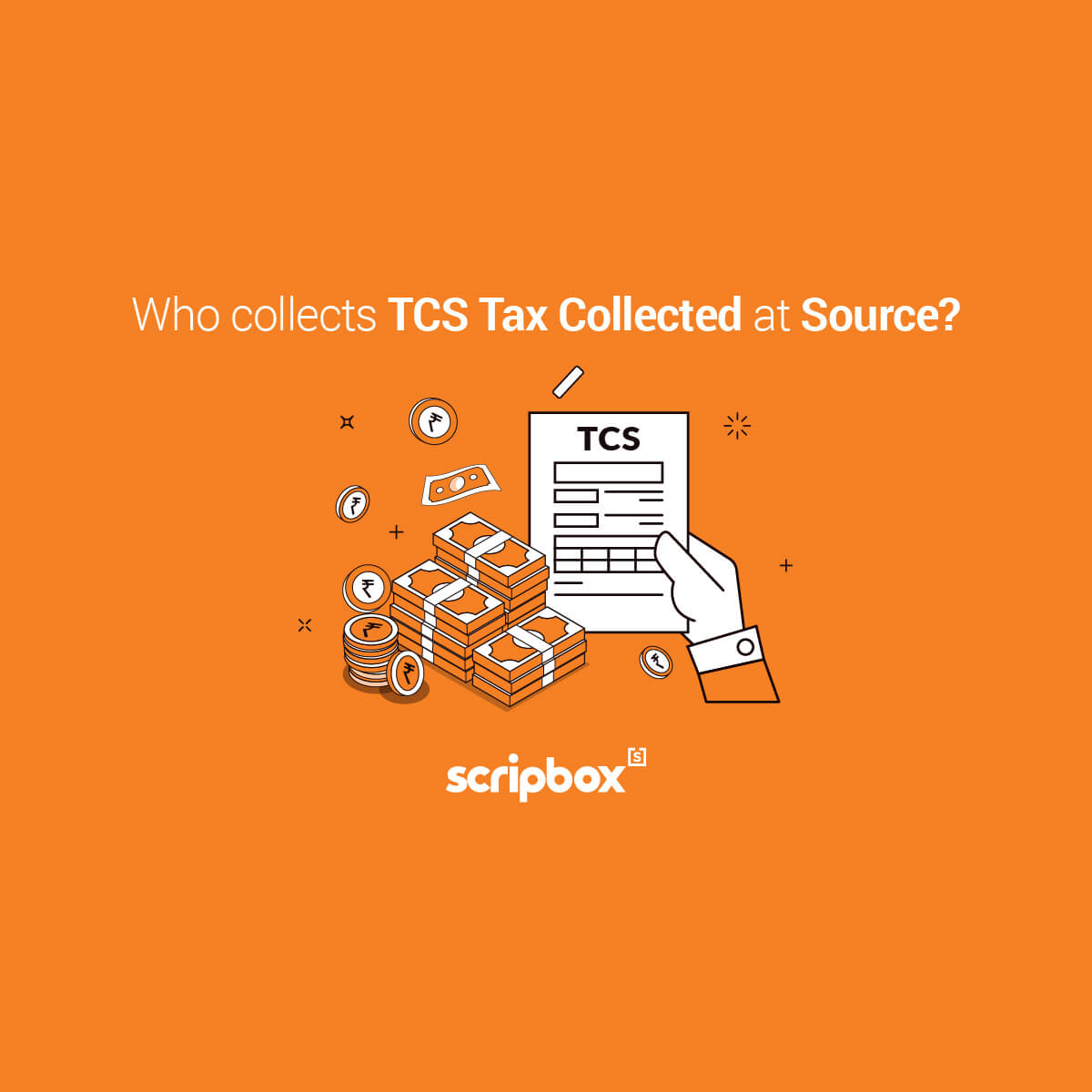The Income Tax Department has launched its new e-filing website on the 7th of June, 2021. This new portal will soon replace the existing portal www.incometaxindiaefiling.gov.in. With the main focus on a user-friendly e-filing experience for the taxpayers, the new portal ensures a quick and seamless ITR filing process. Currently, ITR-1 and ITR-4 (online and offline), and ITR-2 (offline) are available on the new portal. Other ITRs such as ITR-3, ITR-6, ITR-5, and ITR-7 will also be available. For the month of June 2021, the new ITR filing software will be free of cost for taxpayers. ITR will be immediately processed leading to a quick income tax refund. A single dashboard will represent all the tax-related interactions.
The applicability of ITR or Income Tax Return depends on the type of taxpayer and the income sources during the year. In this article we have covered each ITR i.e. ITR-1, ITR-2, ITR-3 and so on along with its applicability and non-applicability. An incorrect selection of ITR mat lead to a hassle and revision of ITR. In order to avoid such situations it is always better to know which ITR is applicable to you.
What is an income tax return?
An income tax return is a form that every taxpayer files to the income tax department. Taxpayers need to file the income earned, deductions claimed, expenses made, investments made and taxes paid during the financial year.
The income tax return needs to be filed on the e-filing website on or before the due date of filing of return. The applicability if ITR depends on the below factors:
- Category of taxpayers i.e. individual, HUF, AOP, Company and so on
- Source of income earned
- Amount of income earned
Why is it important to file an Income Tax Return?
Any taxpayer who satisfies the below conditions will be mandatorily required to file an income tax return:
- The gross income earned during the financial year is more than:
| Taxpayer | Income |
| Being an individual of age below 60 years | Rs 2.5 lakhs |
| Being an individual of age above 60 years and below 80 years | Rs 3 lakhs |
| Being an individual of age above 80 years | Rs 5 lakhs |
- The taxpayer is a company or a firm, irrespective of profit or loss made during the financial year
- A taxpayer has more than one source of income. Example- A taxpayer has salary income along with rental income from house property. Here he needs to file ITR mandatorily
- The taxpayers want to claim a tax refund from the department
- In case the taxpayer wants to carry forward the loss under any head of income
- Being a resident of India, the taxpayer has an asset or any financial interest in an entity that is located outside India.
- Being a resident of India, the taxpayer is a signing authority in any foreign account.
- When an NRI earns all or any of his income from sources in India, the income is taxable in India. Hence, the NRI needs to file an ITR and report his/ her income in the ITR.
- A taxpayer earns income derived from property held under a charitable or religious trust or a political party or a research association, news agency, educational or medical institution, trade union, a not for profit university or educational institution, a hospital, infrastructure debt fund, any authority, body or trust.
- He/ she wants to apply for a loan or a VISA
Due Date of filing Income Tax Return for FY 2022-23 and AY 2023-24
| Taxpayer | Due Date |
| Individual | 31st July 2023 |
| Body of Individuals (BOI) | 31st July 2023 |
| Hindu Undivided Family (HUF) | 31st July 2023 |
| Association of Persons (AOP) | 31st July 2023 |
| Businesses (Requiring Audit) | 31 October 2023 |
| Businesses (Requiring TP Report) | 31 November 2022 |
Which Income Tax Return to choose?
ITR-1 or Sahaj
Applicability
ITR-1 is applicable to taxpayers who have earned income under the below-mentioned head of income during the financial year:
- Income from salary or pension
- Income from house property (excluding cases where the taxpayers want to carry forward a loss from this head of income)
- Agricultural income up to Rs 5000
- The income from other sources. (excluding any income arising from winning lottery or racehorses)
Not Applicable
ITR-1 is not applicable to the taxpayer who satisfies any of the below conditions:
- Capital gain income
- Income from business or profession
- Income from more than 1 house property
- Total Annual Income exceeds Rs 50 lakh
- Agricultural income in excess of Rs 5000
- Taxpayer has any foreign asset or foreign income
- The taxpayer is a director in a Company
- The taxpayer has an Investment in unlisted equity shares at any point of time during the financial year
- Taxpayer, being a resident, has signing authority in any account outside India
- Taxpayer, being a resident, have any financial interest in an entity outside India
ITR-2
Applicability
ITR 2 is applicable to individuals and HUFs who have earned income including:
- Salary or pension income
- Income from a house property
- Income from other sources. (including any income arising from winning lottery or racehorses)
- The total income from the below must be greater than Rs 50 lakh:
- Salary or pension
- House property
- Other sources of income
- Agricultural income in excess of Rs 5000
- Taxpayer has any foreign asset or foreign income
- Taxpayer is a director in a Company
- Income from capital gains
- The taxpayer has an Investment in unlisted equity shares at any point of time during the financial year
- The taxpayer is an RNOR resident not ordinarily resident and non-resident
Moreover, in case the income of other assessee is clubbed with the income of the taxpayer and the income of other assessee falls under any of the above categories, the taxpayer will have to file an income tax return-2.
Here the other assessee can be the taxpayer’s spouse, child, etc. whose income is being clubbed with the taxpayer.
ITR-2 is not applicable to the taxpayers who have income from business or profession. These taxpayers need to file ITR-3 or ITR-4 depending on a few conditions.
ITR-3
A taxpayer being an individual or a HUF and having income from a proprietary business or by carrying profession can file ITR-3. The taxpayer must also satisfy the below criteria:
- The taxpayer is a director in a Company
- A taxpayer has an Investment in unlisted equity shares at any point of time during the financial year
- The taxpayer is a partner in a firm and has income from the firm
The taxpayer can also file income from salary or pension, house property and other sources in ITR-3
ITR-4 or Sugam
ITR-4 is applicable to partnership firms (excl LLP), individuals, and HUFs having income from business or profession. The taxpayers opting for a presumptive income scheme under section 44AD, 44 ADA, and 44AE can also file ITR-4. Further, the turnover must be less than Rs 2 crore. In case the turnover exceeds Rs 2 crore, the taxpayer will have to file ITR-3.
Not Applicable
ITR-4 is not applicable to the taxpayer who satisfies any of the below conditions:
- The total income exceeds Rs 50 lakhs
- The taxpayer has any foreign asset or foreign income
- Taxpayer is a director in a Company
- The taxpayer is an RNOR resident not ordinarily resident and non-resident
- Income from more than 1 house property
- The taxpayer has a carried forward loss from previous years or wished to carry forward loss on the current year
- Taxpayer, being a resident, has signing authority in any account outside India
- A taxpayer, being a resident, have any financial interest in an entity outside India
- The taxpayer has earned any income from any source outside India
- The taxpayer has an Investment in unlisted equity shares at any point of time during the financial year
ITR-5
ITR-5 is applicable to the following categories of taxpayers:
- Partnership Firms
- Limited liability partnership LLPs
- Association of Persons AOPs
- Body of Individuals BOIs
- Artificial Judicial Person AJP
- Estate of insolvent
- Estate of deceased
- Business Trust and investment fund
ITR-6
ITR-6 is applicable to companies and this ITR needs to file electronically only. However, ITR-6 is not applicable to any company that earns income from property held for charitable or religious purposes. These companies are also claiming an exemption under section 11 of the Income Tax Act, 1961
ITR-7
ITR-7 is applicable to persons including companies who are mandatorily required to file return under section 139 (4A) or section 139 (4B) or section 139 (4C) or section 139 (4D) or section 139 (4E) or section 139 (4F).
Each of the above section is explained in detail below:
Section 139 (4A)
This section covers every person in receipt of income derived from property held under trust or other legal obligation wholly for charitable or religious purposes or in part only for such purposes.
Section 139 (4B)
This section is applicable to any political party. If the total income without giving effect to the provisions of section 139A exceeds the maximum amount not chargeable to income-tax ITR-7 is applicable
Section 139 (4C)
Any taxpayer being:
- Association or institution referred to in section 10(23A)
- Institution referred to in section 10(23B)
- News agency
- Scientific research association
- Fund or institution or university or other educational institution or any hospital or other medical institution.
Will have to mandatorily file ITR-7?
Section 139 (4D)
Any taxpayer being every university, college, or other institution, which is not required to file ITR under any other provision of section 139, must file ITR-7 u/s 139 (4D)
Section 139 (4E)
Any taxpayer being any business trust, which is not required to file ITR under any other provision of section 139, must file ITR-7 u/s 139 (4E)
Section 139 (4F)
Any taxpayer being any investment fund referred to in section 115UB, which is not required to file ITR under any other provision of section 139, must file ITR-7 u/s 139 (4E)
Penalty for non-filing of ITR
For non-filing of ITR penalty is levied which ranges from Rs 1000 to Rs 10000, depending on the difference between the due date and actual filing of ITR. Other than the penalty, a taxpayer faces other inconveniences such as carry forward losses and claiming an income tax refund.
A taxpayer must always remember the due date and file the return without a miss. A taxpayer always has an option to revise the income tax return in case he/she has missed any information or filed an incorrect return.
It is better to revise an income tax return than not file it at all.
How to File Income Tax Return?
You can file the income tax return using 2 approaches. Firstly you can prepare and submit online on the income tax e-filing website. Secondly, you can prepare the return using an excel/ Java utility, upload the utility and submit it online on the website. Under both the options, you file ITR online. The only difference is the mode of preparation on the return.
Prepare and Submit Online
Under this option, you need to prepare the return by entering the relevant information directly on the e-filing portal.
- Firstly, log in to your account on the website by entering your ID (PAN) and password
- Click on the e-file menu and select the option of ‘Income Tax Return’
- Now, add the assessment year and the type of ITR.
- Select the ‘Filing Type’ as ‘Original/Revised Return’
- Select ‘Submission Mode’ as ‘Prepare and Submit Online’ and continue
- Read the Instructions carefully and Fill in all the applicable and mandatory fields.
- To ensure you do not lose any data, due to session time out, Click on the ‘Save Draft’ button periodically. You can edit this draft for the next 30 days.
- Choose the appropriate Verification option in the ‘Taxes Paid and Verification’ tab
- Click on the ‘Preview and Submit’ button, Verify all the data entered in the ITR.
- Lastly, ‘Submit’ the ITR
Prepare Through Utility and Submit Online
- Download the Excel or Java utility by visit the official website.
- Select the assessment year and download the file. A zip file will be downloaded. Extract the utility from the zip folder
- Open the downloaded file, click on ‘enable content’ and then click on ‘enable macros’
- Add the relevant details and validate each sheet in the utility.
- Save the file. Now, generate and save the XML.
- Log in to your account on the website by entering your ID (PAN) and password
- Click on the e-file menu and select the option of ‘Income Tax Return’
- Now, add the assessment year and the type of ITR.
- Select the ‘Filing Type’ as ‘Original/Revised Return’
- Select ‘Submission Mode’ as ‘Upload XML’ and continue.
- Now, select the verification and submit the income tax return.
- Lastly, verify the income tax return.
Recommended Read: How to File ITR Online?
Verification of the Income Tax Return
After filing the ITR you must verify it within 120 days of submitting it. You can either verify offline or through any of the inline modes. To verify offline you need to send the Acknowledgement of ITR to CPC, Bangalore India. To verify online you can select the option of generating EVC through bank ATM, Aadhaar OTP, or prevalidated bank account/ Demat account
Recommended Read: Form 13 for TDS Deduction























Show comments